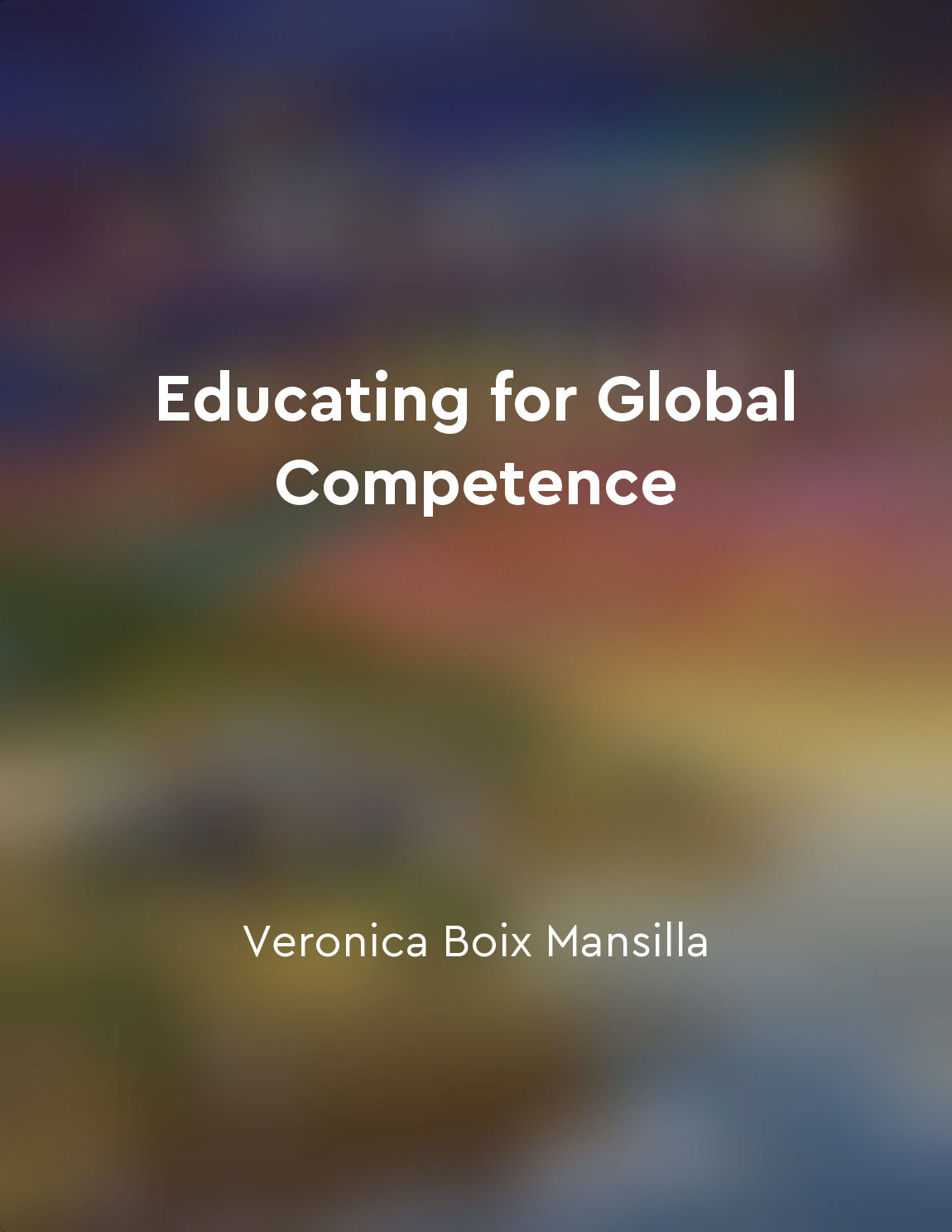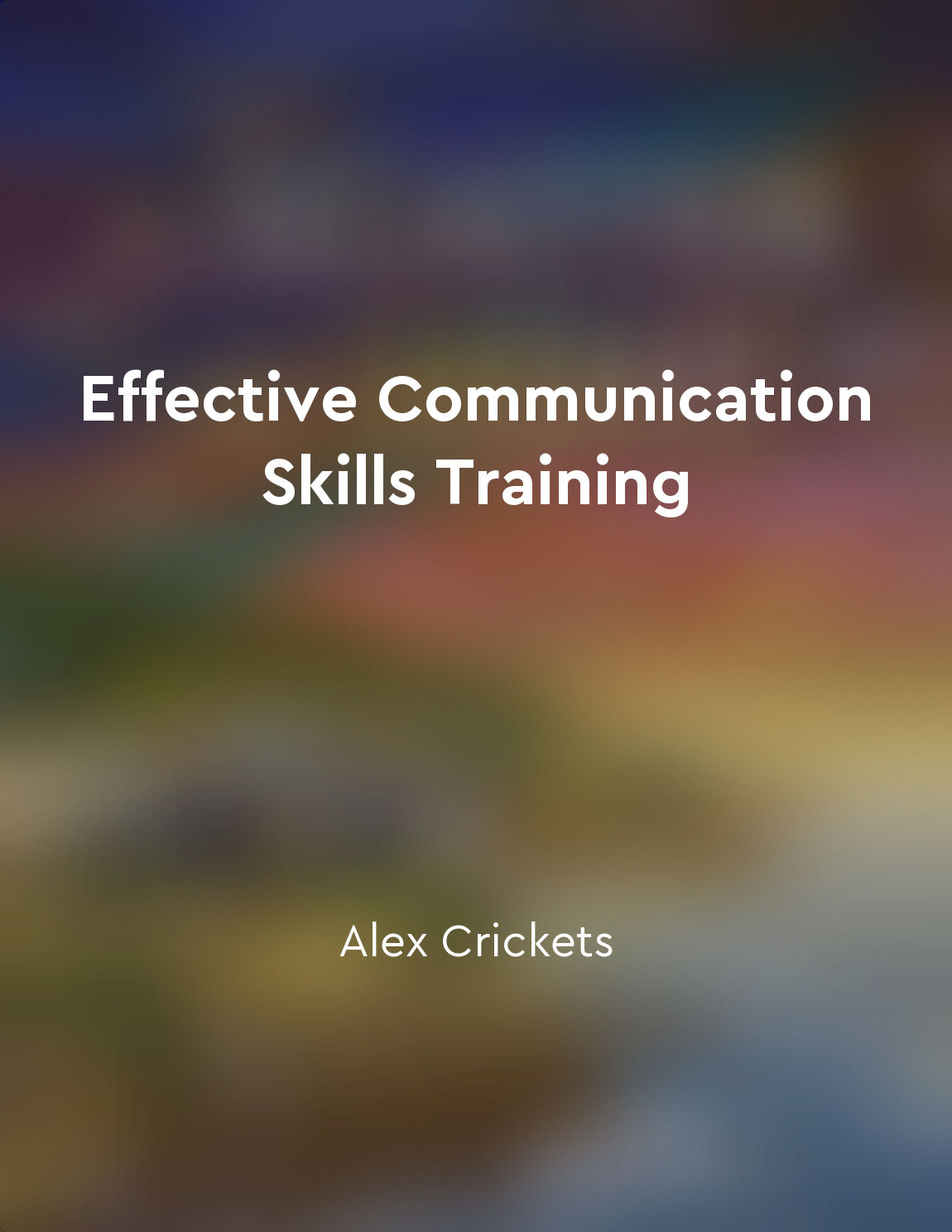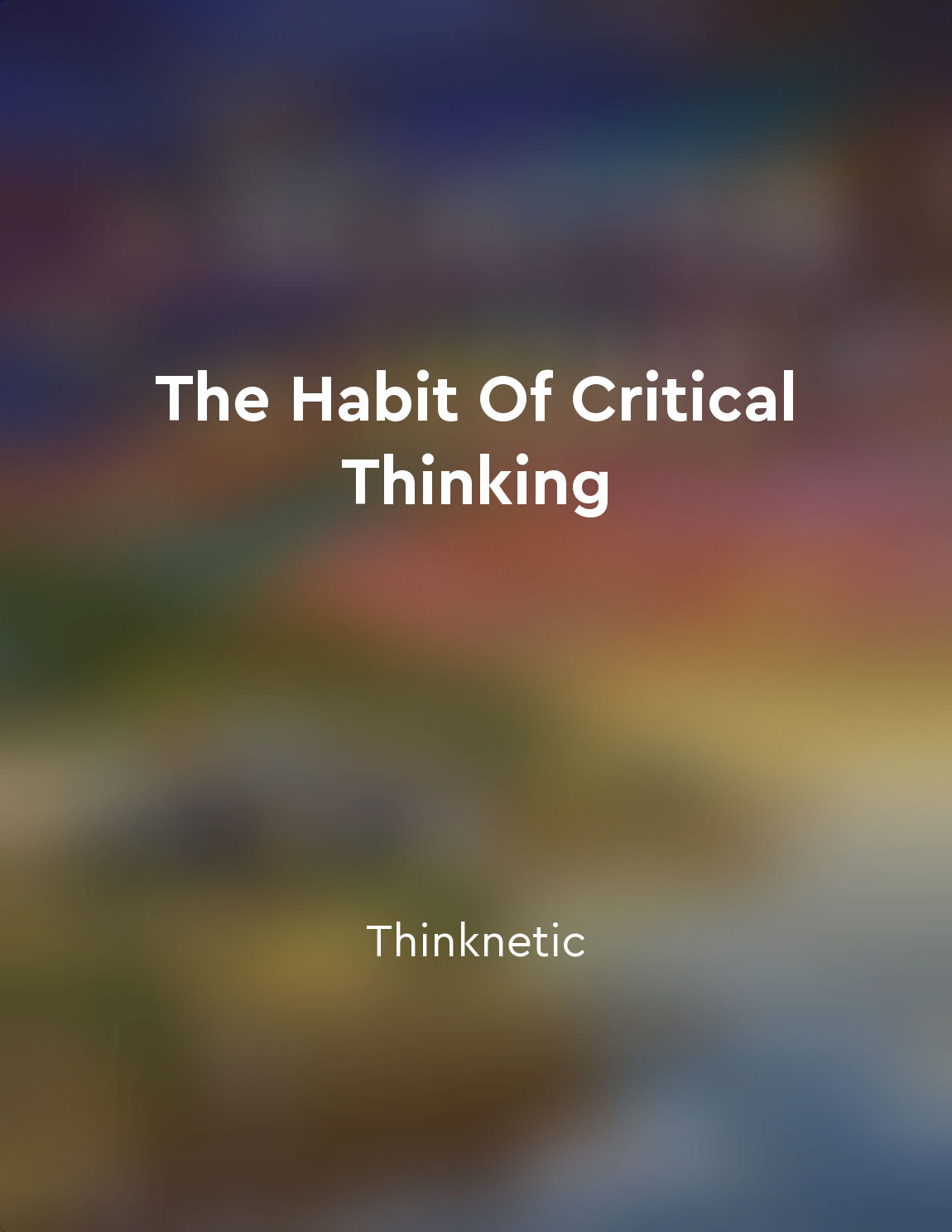Educators must cultivate students' ability to navigate diverse perspectives from "summary" of Educating for Global Competence by Veronica Boix Mansilla,Anthony Wells Jackson
To prepare students for an increasingly interconnected world, it is essential for educators to focus on developing their ability to engage with diverse perspectives. This involves going beyond merely acknowledging the existence of different viewpoints and actively cultivating the skills needed to navigate them effectively. By providing students with opportunities to explore diverse perspectives and engage in meaningful dialogue, educators can help them develop the critical thinking and communication skills necessary for global competence. One way educators can help students navigate diverse perspectives is by encouraging them to approach unfamiliar ideas with an open mind. This involves challenging preconceived notions and being willing to consider viewpoints that may differ from their own. By fostering a culture of intellectual curiosity and respect for differing opinions, educators can create a learning environment that encourages students to explore new ideas and perspectives. In addition to fostering open-mindedness, educators can also help students develop the skills needed to critically evaluate diverse perspectives. This involves teaching students how to assess the credibility of sources, analyze arguments, and identify bias. By equipping students with these critical thinking skills, educators can empower them to navigate the complexities of a globalized world with confidence and discernment. Furthermore, educators can promote empathy and understanding by encouraging students to actively listen to and engage with diverse perspectives. This involves fostering a sense of empathy and cultural humility, as well as teaching students how to communicate effectively across cultural and linguistic boundaries. By promoting empathy and understanding, educators can help students develop the interpersonal skills needed to build meaningful relationships and collaborate with others from diverse backgrounds.- Cultivating students' ability to navigate diverse perspectives is crucial for preparing them to thrive in an interconnected world. By fostering open-mindedness, critical thinking, empathy, and understanding, educators can help students develop the skills and mindset needed to engage with a wide range of perspectives and contribute positively to global conversations and collaborations.
Similar Posts
Engaging content for young learners
The concept of engaging content for young learners is vital in educational materials, especially in a book like 'EHF Math Olymp...

Global competence requires a deep understanding of interconnectedness
Global competence demands a profound recognition of the complex web of interconnections that shape our world. To truly grasp th...
Persuasion techniques differ based on cultural norms
When it comes to persuading others, it is essential to understand that different cultural norms dictate the most effective tech...
Uncover bias
Bias can be a tricky thing to identify, especially when it is lurking beneath the surface, hidden from view. It is important to...

Ensuring message clarity and understanding
To ensure effective communication, it is essential to focus on message clarity and understanding. This means that the message b...
Myths and legends are presented as facts
Throughout history, myths and legends have played a significant role in shaping our understanding of the past. These stories ar...

Emphasize precision
When it comes to critical thinking, one of the key concepts to keep in mind is the importance of precision. Precision refers to...
Freire's concept of praxis
One of the central ideas that Freire explores in 'Pedagogy of the Oppressed' is the concept of praxis. Praxis is a term that re...
Education shapes individual identities
The process of education plays a critical role in shaping the identities of individuals within society. As individuals progress...
The self is constructed through dialogic relationships
The human self is not a static, isolated entity but rather a dynamic, ever-changing construct that is shaped and molded through...

